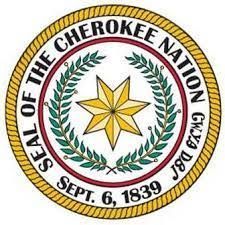
Belva Lockwood, Kim Teehee, and the Cherokee Nation
Living a century apart, two women bound by one Supreme Court case make history for themselves and the Cherokee Nation.
Belva Lockwood was born in 1830 in the Niagara County town of Royalton, NY. From a young age, she had to continually fight for the right to obtain an education. Back then, it wasn’t customary for girls to continue their schooling after a certain age--let alone to go to college and then law school! But Belva Lockwood did all these things. She earned her own tuition money to continue her education after age 14. She found a college and then a law school that would accept her during a time when most institutions still prohibited women from enrolling. She became one of the first female lawyers in the United States. Lockwood even fought against and changed the law that prohibited women from arguing before the U.S. Supreme Court. In 1879, she became the first woman to be admitted to the Supreme Court Bar. A year later, she argued her first case, Kaiser v. Stickney, before the Supreme Court. In 1884 and 1888, she became the first woman to run for President of the United States.
In 1906, 76-year-old Lockwood argued her second and most famous case before the Supreme Court. In United States v. Cherokee Nation, she “represented the Cherokee Nation, which sought full payment from the federal government under an 1835 treaty in which the tribe had ceded land in Georgia to the federal government for $1 million. The government had not paid in full. [….] Lockwood successfully argued to uphold [a lower court’s] judgment for the money owed, with interest, to the Cherokee Nation. The result was a $5 million dollar payment, one of the largest made to that date to a Native American tribe for land ceded to the government.” Until her death in 1917, Lockwood continued to make history and fight for the rights of women and other marginalized groups. Although Lockwood can no longer help fight for the rights of the Cherokee Nation, their plight continues to this day.
To unravel this story, let’s return to the 1835 treaty that Lockwood upheld on behalf of the Cherokee Nation in her 1906 Supreme Court case. “In 1835, U.S. government officials and members of the Cherokee Nation signed the Treaty of New Echota, which led to the expulsion of Cherokees from their territory east of the Mississippi River in a mass exodus known as the Trail of Tears. A lesser-known provision of the same treaty also granted the Cherokee Nation a delegate in the House of Representatives.” Today, the Cherokee Nation has renewed its campaign to demand that Congress once again honor the provisions of the 1835 treaty.
In 2019, Cherokee Nation Principal Chief Chuck Hoskin Jr. appointed Kim Teehee as its first delegate. Teehee is a Cherokee Nation citizen. “She previously served President Barack Obama as the first-ever Senior Policy Advisor for Native American Affairs in the White House Domestic Policy Council for three years.” Similar to Belva Lockwood and her many ‘firsts,’ Kim Teehee became the first person, and the first Native American woman, to hold this position. Upon her nomination, Teehee acknowledged “that it was especially important for the Cherokee Nation to have a delegate in Congress because the treaty that specified it also led to” the loss of Cherokee homelands and “the Trail of Tears, in which some 4,000 Cherokees died.” The delegate would “also be an advocate for all Native American issues.”
“The Cherokee Nation is asking the House Rules Committee to hold a hearing on the matter and subsequently pass a resolution to establish the [delegate] seat before Congress adjourns in December [2022].” Like other non-voting members of Congress, Teehee wouldn’t have a vote in the House; however, she would be able to serve on committees, offer amendments, and introduce bills. Perhaps Kim Teehee will have many more ‘firsts’ in her future.
Hope L. Russell, Ph.D.

